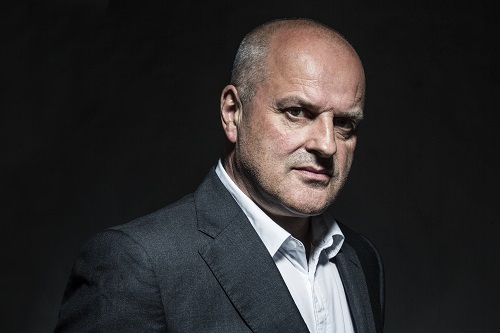 United Kingdom Christopher Purves sings Handel: Christopher Purves (baritone); Arcangelo / Jonathan Cohen (director/harpsichord). Milton Court Concert Hall, London, 7.1.2018. (CC)
United Kingdom Christopher Purves sings Handel: Christopher Purves (baritone); Arcangelo / Jonathan Cohen (director/harpsichord). Milton Court Concert Hall, London, 7.1.2018. (CC)

Handel – Rinaldo: ‘Sibilar gli angui d’Aletto’; Siroe, re di Persia: ‘Gelida in ogni vena’; Agrippina – Overture; Belshazzar: ‘Opprest with never ceasing grief’; Concerto grosso in D, Op.6/5; Athalia: ‘Ah, canst thou but prove me’; Acis and Galatea: ‘I rage, I melt, I burn … O ruddier than the cherry’; Aci, Galatea e Polifermo: ‘Fra l’ombre e gl’orrori’; Theodora – Overture; ‘Racks, gibbets, sword and fire’; Concerto grosso in F, Op.3/4; Esther: ‘How art thou fall’n; Turn not, O Queen’
Baritone Christopher Purves has a remarkably varied repertoire, from Berlioz (Méphistophélès, Damnation) at the Barbican with Rattle, the recent Messiah also at the Barbican, the title role in the UK premiere of Philip Glass’ The Perfect American at ENO or the role of The Protector in George Benjamin’s Written on Skin at Covent Garden. This is remarkable breadth – and Purves has already proved himself with a highly successful first volume of Handel arias for Hyperion (he was at pains to point out Volume 2 will be following on this year and that this concert mixes repertoire from the two discs).
Although the evening seemed to be about Purves (who remained onstage throughout, listening to the purely orchestral items from a chair at the side of the stage, changing side at half time), it was really about Handel. As Purves said in his introduction, this selection revealed the range of Handel’s bass men, from ‘complete and utter bastards’ to some ‘real sweeties’. That wasn’t the only range on display, either: although advertised as ‘baritone,’ Purves most definitely explored the lower regions of the bass range on occasion.
There were two Overtures in the programme, but neither began the concert, or even the second half. Instead, it was Rinaldo’s villain Argante’s ‘Sibilar gli angui d’Aletto’, the orchestral sound bright. Purves himself was straight in with commanding voice, resonant, agile and focused. Clearly beginning as he meant to go on, stepping straight into his various characters’ shoes he gave a marvellously lyrical ‘Gelido in ogni vena’, King Cosroe’s guilty remorse aria notable for the cleanliness of its vocal intervals. Nice to see an aria from the later dramatic oratorio Belshazzar – it wasn’t all opera – the long-breathed ‘Opprest with never ceasing grief’ separated from its operatic companions by a vigorous account by Arcangelo of the overture to Agrippina (some superb virtuoso oboe playing from Katharina Spreckelsen). Finishing part one was another oratorio aria, Abner’s assertive aria from Athalia, ‘Ah, canst thou but prove me’.
Two Concerti grossi appeared in the course of the evening, the first Op.6/5, dignified and graceful, and in the second half Op.3/4, boasting some beautifully mellow oboe playing in its little flourish in the slow movement; the robust counterpoint of the following section was extremely well delineated.
One of Purves’ great strengths is the variety of tone and declamation he can call on. For Polyphemus’ famous ‘I melt … O ruddier than the cherry’ he offered a highly nuanced account, more so than even Ashley Riches in the same venue in a performance of the 1718 Cannons version in May 2016; some fun shenanigans with recorder player Rebecca Miles beforehand, too. Intriguing that it sat with a slowly-unfolding aria from Handel’s earlier setting of Acis: ‘Fra l’ombre e gl’orrori.’ Large vocal leaps were easily managed (this was the aria that, more than any other, took him to the depths of his range). A rapid-fire Theodora Overture led to an excerpt, Valens’ ‘Racks, gibbets, sword and fire’, the orchestra furiously vital, Purves spitting out his words. Magnificent: Handel at his most real. Finally, two excerpts from the oratorio Esther: a stately ‘How art thou fall’n’ and the sorrow aria ‘Thurn not, O Queen’. A slightly surprising non-firework ending to this celebration of both Handel and Purves, a mood continued by the encore, ‘Leave me, loathsome light’ from Semele.
Colin Clarke